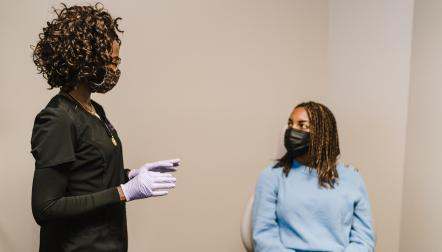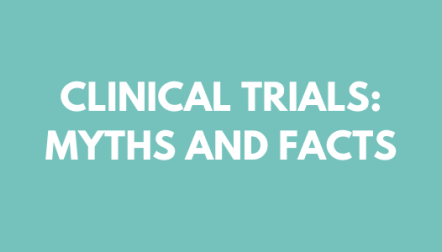
What is a clinical trial?

- Medically reviewed by
- AKF's Medical Advisory Committee
- Last updated
- May 17, 2022
A clinical trial, or clinical research study, is a type of medical research or study that involves people. People who join clinical trials are volunteers (also called participants).
Clinical trials are led by a team of researchers that can include scientists, doctors, nurses, social workers or other health professionals. Sometimes this team of researchers is called the treatment team. Usually, the idea behind a clinical trial starts with scientists or researchers in a laboratory. Once researchers test a new treatment, medicine or therapy in a laboratory with animals, and it is approved for safety, they will move on to testing with people. This testing is a clinical trial.
The main goals of clinical trials are:
- To find new ways to prevent, detect (find) or treat diseases or health conditions
- To make sure new treatments or therapies work well and are safe for people
You can join a clinical trial as a healthy volunteer (a person who does not have the disease or health condition being studied) or as a patient volunteer (a person with the disease or health condition being studied).
There are different types of clinical trials. Sometimes clinical trials will directly benefit the person participating because they will get access to promising new medicines or treatments for a disease that are not yet available to the public. Other times there is no direct benefit to the person participating, but the results from the trial will benefit science, or will benefit other people in the future.
The researchers running clinical trials must follow strict rules made by government agencies to protect the safety of the people who participate. The Food and Drug Administration (FDA) is the federal agency that approves all new drugs (medicines) or treatments that are studied in clinical trials.












